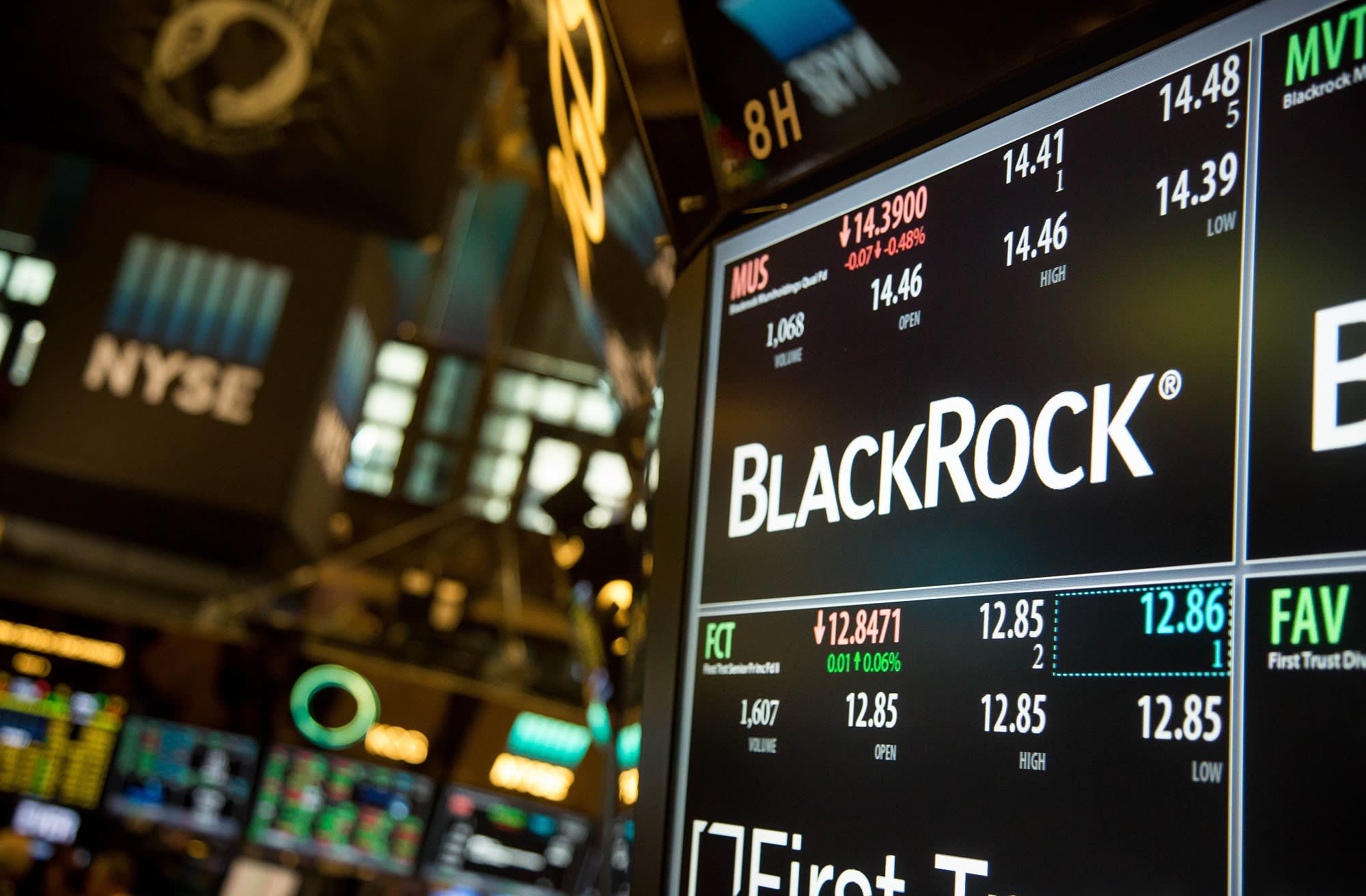A BlackRock signage is displayed on a monitor on the floor of the New York Stock Exchange.
Michael Nagle | Bloomberg | Getty Images
The European fund industry saw a deluge of investment in 2020, with net inflows rising by around 61.6%, according to new figures from Refinitiv Lipper.
Across the year, overall net inflows into European funds were estimated at 574.3 billion euros ($696 billion), up from 303.9 billion euros in 2019 and vastly outstripping the annual average of 192.7 billion euros between 2004 and 2019.
Following a steep plunge in March as the coronavirus pandemic spread throughout the world, global stock markets recovered over the course of the year, due in part to unprecedented fiscal and monetary stimulus from governments and central banks and the later emergence of successful vaccines.
The 2020 total also marks the second-highest inflows into mutual funds and ETFs (exchange-traded funds) in the history of the European fund industry. Mutual funds, which enjoyed 483.5 billion euros of inflows, are those which pool money from investors to allocate to stocks, bonds, money market instruments or other alternative assets.
ETFs are baskets of securities that tend to track an underlying index and are listed on stock exchanges, trading throughout the day like ordinary stocks, and saw inflows of 90.8 billion euros in 2020.
“Generally speaking, European investors seem to be somewhat cautious since the majority of the inflows were invested in money market funds (+€268.4 bn), while long-term investment products enjoyed inflows of €305.8 bn,” noted Detlef Glow, head of Lipper EMEA research at Refinitiv.
“It is remarkable that the flows in money market products were the highest annual flows in the history of the European fund industry.”
Money market funds are mutual funds designed to offer investors high levels of liquidity with minimal risk. They invest in such instruments as cash, cash equivalent securities, and short term debt-based securities with high credit ratings, like U.S. Treasurys.
For comparison, equity funds saw inflows of 212.4 billion euros, bond funds 129.6 billion and mixed-assets funds 26.7 billion.
With net inflows of 24.8 billion euros, BlackRock was by far the largest fund promoter in Europe in December. In its fourth-quarter earnings report, the U.S. giant said its $391 billion net inflows for the full year was driven by “record flows in cash, active equity and alternatives and continued
momentum in fixed income.”
Risk on in December, despite uncertainty
Glow noted that despite a deterioration in the continent’s Covid-19 situation and lockdown measures being reintroduced in multiple countries, along with the lingering risk of a hard Brexit and uncertainty over the U.S. election outcome, December 2020 was another positive month for the European fund industry and riskier assets in particular.
“Despite these fears, investors bought into risky assets as long-term funds enjoyed estimated net inflows of €90.6 bn, while money market products had estimated inflows of €31.7 bn,” he said.
Equity funds (58.9 billion) were by far the best-selling asset type overall for December 2020, as optimism over vaccine progress and a potential economic recovery seemingly offset the aforementioned concerns.
Vis Nayar, European and U.K. chief investment officer at HSBC Global Asset Management, told CNBC on Monday that a rotation into cyclical parts of the global economy such as resources and banks had boosted risk sentiment in Europe in particular, since the sectors most aligned with a global economic recovery are well represented in the continent’s indexes.
“These sectors are levered into global growth and appear well positioned for the expected synchronised global recovery in coming years on the back of strong fiscal support, negative real rates, rising commodities and fiscal expansion — conditions supportive to cyclicals and which we haven’t seen in the last decade,” Nayar said.
